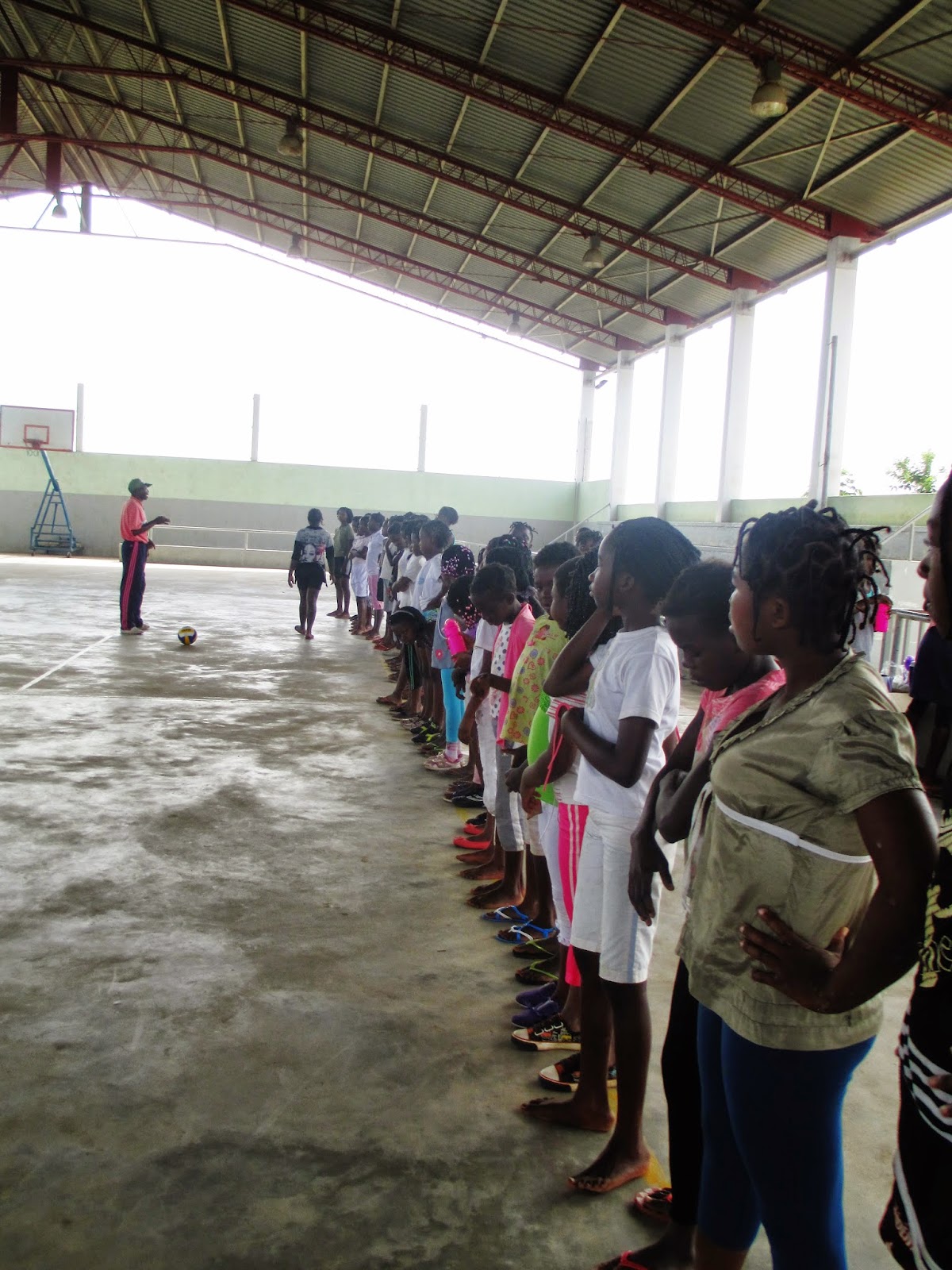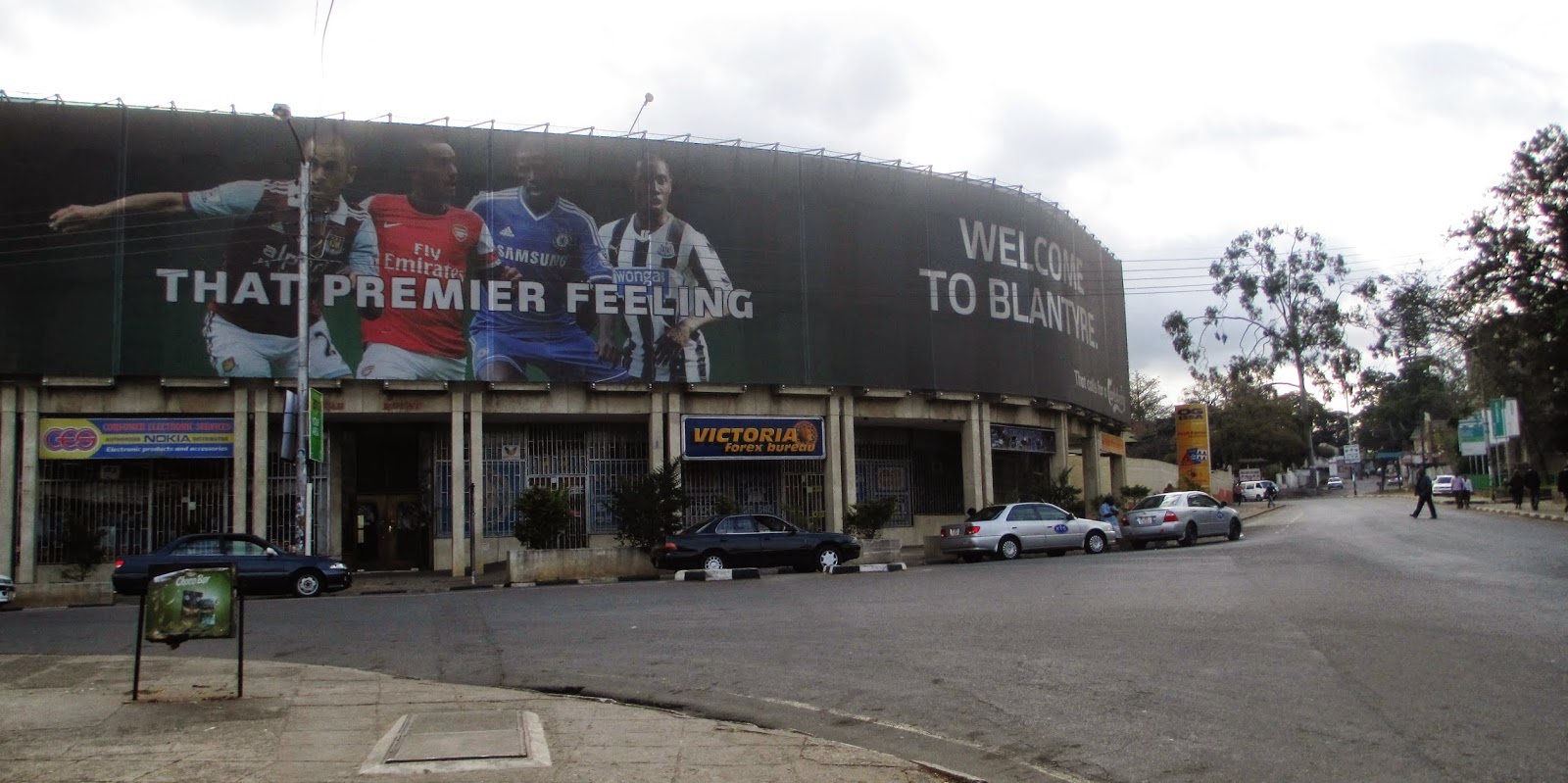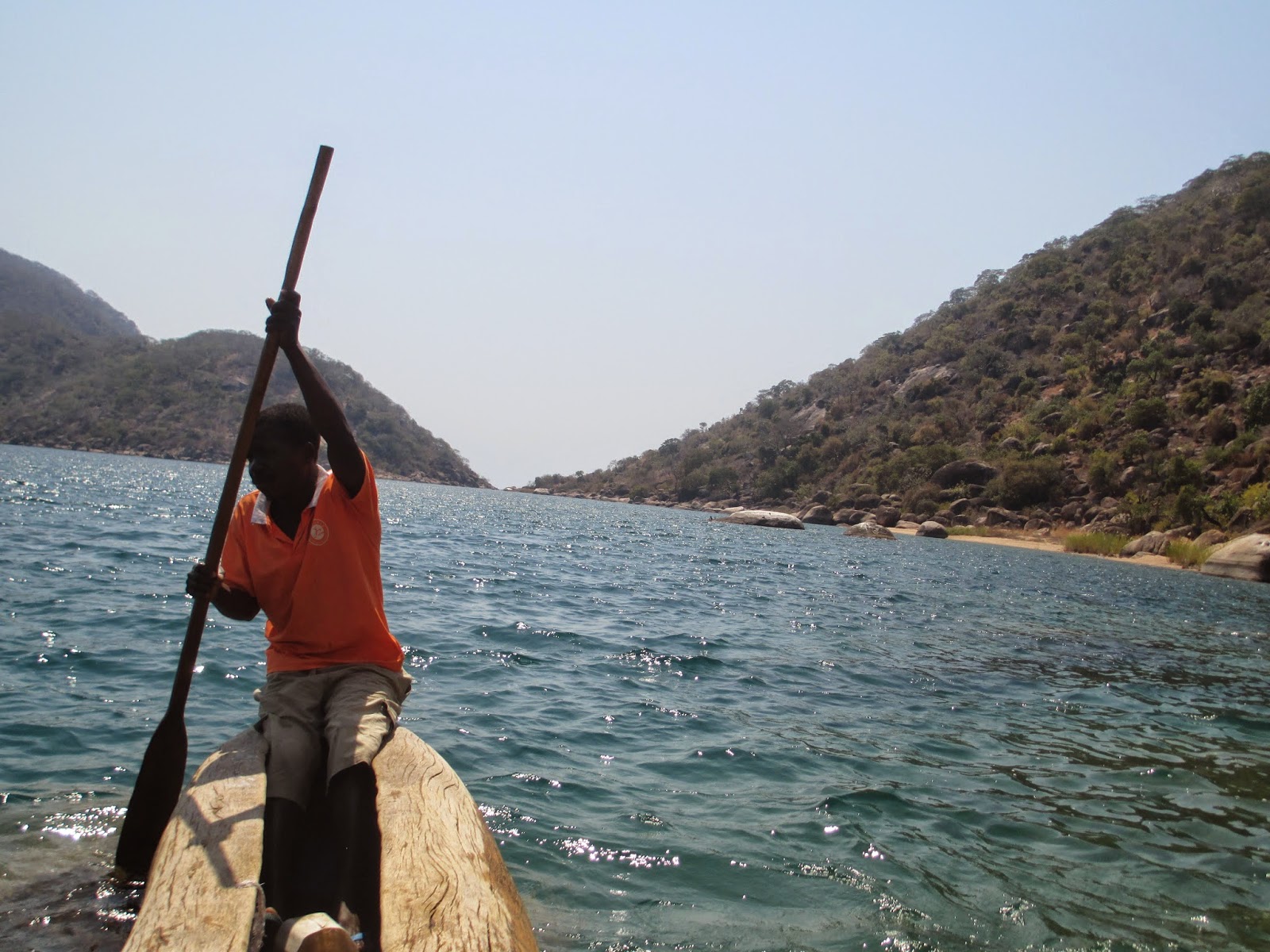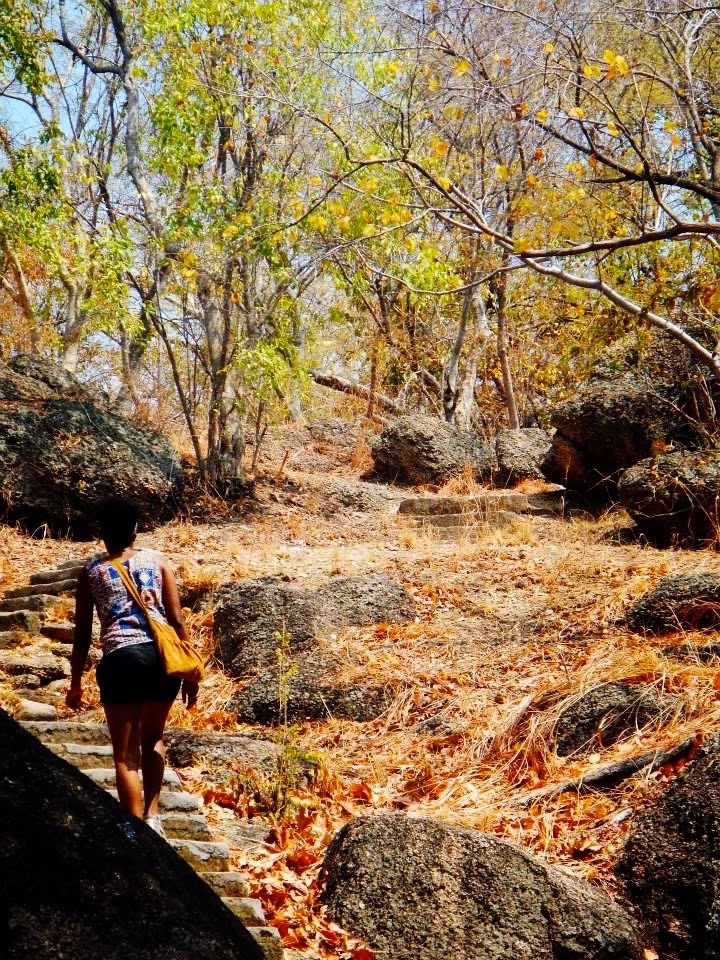 |
| 13 August 2014 |
The girls day camp has been the highlight of my Peace Corps so far! The first part of the event went from August 11th-August 14th where the girls from an elementary school in the community
participated in an introductory course on soccer, basketball, handball and volleyball and HIV/AIDS. The second part will begin in September and for six Saturdays until November, the group will continue to practice the four sports and learn about HIV/AIDS.
Because there are a lack of resources in my host community, the elementary school can't afford to buy balls for the kids. And by the time they reach high school, many of them still won't know the difference between a soccer ball and a volleyball because my secondary school can't afford to buy balls either.
My counterparts and I wanted to start a program that would be able to provide balls to encourage girls to play sports at a young age and teach them income generation methods so that they can buy their own sports material in the future.
By November 2014, my counterparts and I hope to:
1. Promote leadership and team-building skills
2. Empower young girls and women through sports
3. Implement sustainable and fun educational activities
4. Generate community discussions on the facts about HIV/AIDS and health & nutrition
5. Teach HIV/AIDS education through soccer, basketball, volleyball, handball and other activities
6. Advocate community involvement for safe sex practices
7. Encourage more girls and young women to participate in sports in the community
8. Foster a safe environment for girls to have fun
For more information about my grant proposal and this project, visit: http://mozampaz.blogspot.com/2014/07/a-small-grant-project-aimed-to-make-big.html
Peace Corps encourages their volunteers to work with counterparts in their communities when implementing projects. My counterparts, PE teachers Sumburane and Licenço, are more well-versed in sports than I am and were able to give great presentations about using condoms, eating fruits and vegetables, and drinking plenty of clean water. Not to mention, their Portuguese is better than mine and were able to convey their message more clearly.
Moreover, my counterparts said they want to continue working with young girls to encourage them to play sports. In other words, there's hope that this project will continue on after I complete my Peace Corps service in November.
The aspect that I liked most about this event was that female student athletes from my high school
taught the girls different sport activities and facilitated sessions on HIV/AIDS, nutrition, and income generation. In other words, the girls from the elementary school are working with positive female role-models in their community.
I'm so proud of everyone. We worked as a team and that in itself makes us winners!
Here are photos from August 11th- August 14th...
 |
| My counterpart (Licenço) and a student (Esmaralda) are giving a volleyball demonstration to the athlete mentors during the training of trainers session |
 |
| First day of the camp and the girls are taking a pre-test on HIV/AIDS, health & nutrition, and income generation. |
 |
| Captolina and Lolita grading the pre-tests |
 |
| The girls are watching short films on a projector about HIV/AIDS ("Scenarios From Africa") |
 |
| As an ice-breaker, the girls are playing "Freeze Dance". When the music stops, they have to stand still or else they're out of the game |
 |
| The girls dancing and having a great time! |
 |
| Student athletes are here giving a talk on income generation projects |
 |
| It's important to stretch before playing sports. Cramps in the muscles no fun |
 |
| My counterpart and I discussing the fundamentals of basketball |
 |
| Practicing passing and dribbling the basketball |
 |
| Here I am being assertive. It's game time! |
 |
| My counterpart, Mr. Sumburane is explaining the the rules of volleyball |
 |
| The girls from the elementary school are lined up in the gym to practice volleyball |
 |
| The girls were split up in four groups for volleyball drills with the high school volleyball players |
 |
| Anabela showing off her volleyball skills |
 |
| More volleyball practice |
 |
| A group of girls holding a volleyball with their athlete mentor, Anabela (in red) |
 |
| Sidoca pumping up handballs |
 |
| Mr. Licenço teaching some girls how to play handball |
 |
| I promise you that they smile and laugh a lot. But when I try to take pictures of them, sometimes they look as though they lost a game |
 |
| Some of the student athletes and I taking a break |
 |
Dona Margarita is giving an exceptional educational presentation on HIV/AIDS. She mentioned how we shouldn't be afraid to give hugs and hold hands with people who are HIV positive and she debunked some of the myths about the virus
|
 |
| Here's my site-mate, Regan, helping Dona Margarita with the presentation |
 |
| Egg sandwiches and sweet potatoes fries for lunch |
 |
| Mr. Sumburane talking about the importance of abstinence and also describing what condoms are used for. He emphasized that they are NOT to be used as balloons |
 |
| Have you ever seen a condom demonstration using a Coke bottle? Not to brag, but I have! |
 |
| Leticia and Captolina really wanted you to see their beautiful faces. They're two of my girls from the basketball team |
 |
| Sumburane showing the girls a baseball and a baseball bat and telling them the origins of the sport |
 |
| Fernanda and Minoria introducing the next HIV/AIDS activity. This sad box is a piñata that is filled with notebooks and candy. The piñata represents HIV and the baseball bat representing all things that prevent the spread of HIV/AIDS such as abstinence, community awareness and proper condom use. When we combat HIV/AIDS as a community, good things come out of it! Clever, right? ;-) |
 |
| Here are the girls walking quietly in a line like a choo-choo train for their piñata activity |
 |
| Piñata time! |
 |
| This was not only a fun activity that had a positive message about HIV/AIDS, but it was also great for them to swing a baseball bat for the first time. |
 |
| Hey, batta, batta, batta! |
 |
| The piñata looks sadder than before |
 |
| Swing, batta, batta, batta! |
 |
| And all of a sudden, all the good stuff came out! |
 |
| Zombies? No, just the girls trying to grab as much candy as possible |
 |
| They're so happy! |
 |
| Lollipop, lollipop. Oh, lolli, lolli, lolli |
 |
| Track and field practice |
 |
| This was a fun competition to see who could jump the furthest |
 |
| Here are the student athletes encouraging the young girls to continue practicing sports |
 |
| Peace Corps gave me a box full of this little cartoon book about HIV/AIDS. The girls loved it and kept asking for more books to give to their friends |
 |
| Some of our school's volleyball, soccer, basketball, and handball players and mentors |
 |
| Until next time! |






















































































